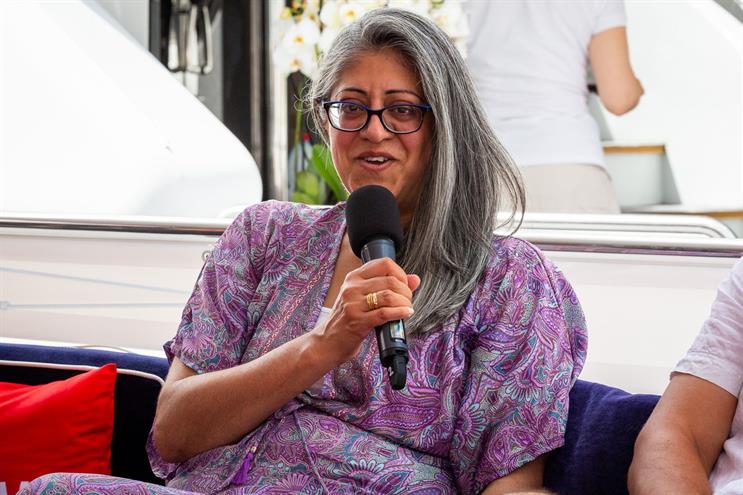
How can advertisers create meaningful and engaging experiences when cookies go, when regulation tightens and as consumers get increasingly protective of their data?
“What cookies promised was a hyper-personal and contextualised service,” said Monica Tailor (pictured main), SVP and global director at McCann Live, at an Ogury-Campaign panel session. “But that’s actually been really difficult to achieve. What it’s actually resulted in, is a slight amount of internet stalking. We’ve swung from people wanting personalisation to not wanting it. And unfortunately, that’s a hangover from us not doing it very well.”
 “We’re in this transitional moment,” said Dan Hagen, EVP, MD, global head of Mx development at Havas Media. “That’s challenging, because we don’t know how long that moment will last. But we do know that the direction of travel is to an environment that is less permissive to surveillance.
“We’re in this transitional moment,” said Dan Hagen, EVP, MD, global head of Mx development at Havas Media. “That’s challenging, because we don’t know how long that moment will last. But we do know that the direction of travel is to an environment that is less permissive to surveillance.
“So, we need to get really good at what we do. The way to do that is to fall back on some of the principles that have been around for decades in advertising but which we forgot because we had data as a crutch.”
Respect and relevance
“We don’t know how long this transition will last,” said Marcello Gruppo, insights director Southern Europe at Ogury. “The market now demands privacy and respect – and advertisers want relevance. Sometimes these don't match. We have to find a balance that gives us the right combination of the two. And now we must do that without using personal information.
“We call that personification, in opposition to personalisation. We translate the needs the user has had in the past, bridge them with other sources of information, and without using sensitive or personal information, we drive results.”
And Ogury’s approach, known as Personified Advertising, allows companies to effectively reach a target audience without the use of cookies and user identifiers.
Hagen said there was a need to find moral and ethical ways to gather data, in a way that will help brands build a detailed understanding of their customers. “We then need to use the right data techniques to push that understanding into our media, with the best level of accuracy.
“One of the things we think will be really important is a return to panel data. We work out the characteristics of the people we want to target.”
 “We also shouldn’t forget,” said Gruppo, “that we need to make sure these ads are visible. What matters is that the consumers see the ads. If we are not delivering the ads to the consumers’ eyeballs, the creative could be fantastic – the best in the world – but it won’t matter. That’s why Ogury believes what we need to be doing as an industry is to focus on formats that are 100% visible.”
“We also shouldn’t forget,” said Gruppo, “that we need to make sure these ads are visible. What matters is that the consumers see the ads. If we are not delivering the ads to the consumers’ eyeballs, the creative could be fantastic – the best in the world – but it won’t matter. That’s why Ogury believes what we need to be doing as an industry is to focus on formats that are 100% visible.”
Tech partnerships
“For me the key to being a good technology partner for advertisers is partnership,” said Tailor. “If you’re working together, you can feed information and insights to each other. So much of business at the moment is a marathon but run at the pace of a sprint. The long-term view remains important. But we’re seeing so much change day-to-day, that can help inform that without you having to cover all the bases all by yourself.”
Hagen had two wishes for his ideal tech partner: "The first is transparency – there’s a lot of technology out there but if you can’t see inside the boxes to see how it works, that is challenging: someone is going to ask me. The clients ask us to be transparent so I need to be transparent with all our partners.
"The second one feeds into this. It is simplicity. We just invent so much language! Let’s not try and confuse each other and ourselves. Can I explain it to my mum?!"
“Right now, the main attribute of a good adtech partner is the ability to adapt with an evolving market,” said Gruppo. You should be intelligent enough to predict the future and flexible enough that you are ready for it.”
On the panel: Edward Craig, head of Content Labs, Campaign (chair); Marcello Gruppo, insights director Southern Europe, Ogury; Monica Tailor, SVP, global director, McCann LIVE; Dan Hagen, MD, global head of mx development, Havas Media



